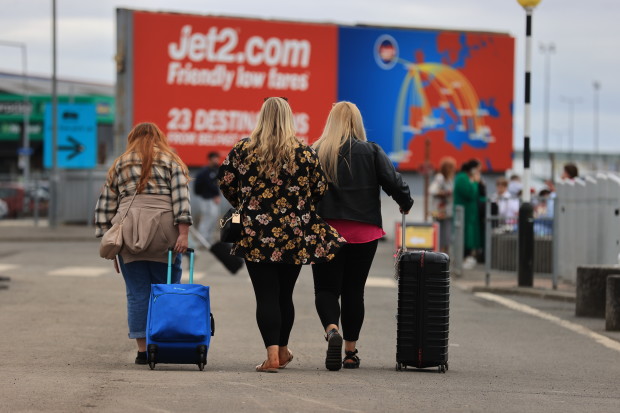
Anyone with any knowledge of the airline industry understands that very little happens without the air traffic controllers — the ground-based air crew monitor the planes moving both in the air and around the airport runways and taxilanes to give instructions for when pilots can land and take off.
While the entire industry is currently dealing with a shortage of people to work the highly demanding role, airports across the United Kingdom are now grappling with extreme disruption caused by an air traffic controller failure.
Don't Miss: Why airlines may have to pay you for canceling your flight
On Aug. 28, hundreds of flights both in and out of airports across the UK were either canceled or faced hours-long delays over what British Transport Secretary Mark Harper later identified as a "technical issue." Flight data from analytics firm Cirius shows that over 790 departures and 785 arrivals were canceled across British airports on Monday.

'It is going to take some days to get people back to where they should be...'
"Lots of flights were canceled and it is going to take some days to get people back to where they should be," Harper told the BBC.
More Travel:
- A new travel term is taking over the internet (and reaching airlines and hotels)
- The 10 best airline stocks to buy now
- Airlines see a new kind of traveler at the front of the plane
While the British government has been scant on details around what exactly went wrong, National Air Traffic Services reported that Monday flights needed to be "processed manually" which "cannot be done at the same volume, hence the requirement for traffic flow restrictions."
Such a breakdown, analysts speculated, came about either from a software failure or deliberate cyberattack.
While the situation was resolved by the end of the day on Monday, canceling thousands of flights sowed significant chaos on the country's airports during a national holiday. According to Harper, it could take several of days for airlines to work through the disruption and get travelers to where they need to be.
"We looked at every avenue — ferry crossings, other flights from other airports in France," Maria Ball, a traveler who was supposed to come back to Liverpool from a family holiday in France, told Reuters. "We looked at trains, the Eurostar. Everything was fully booked out."
This is where you may have seen this type of chaos before (looking at you, Southwest)
The last time a breakdown of such scope took place was when Dallas-based Southwest (LUV) -) earned a callout from U.S. Secretary of Transportation Pete Buttigieg over the "unacceptable" number of flights that needed to be canceled in the days around Dec. 26-27 after a breakdown of the airline's booking system.
Nearly 4,000, or 75% of all domestic flights, were canceled on the day after Christmas alone while an additional 16,700 flights were impacted in the coming days. Estimates show that the airline incurred nearly $825 million in losses.
"I can't say it enough," Southwest CEO Bob Jordan later said in an interview with CNBC. "We messed up.”
Jordan also said that they were looking for a "larger answer to reset the network" while a representative for the company that made the airline's booking software said that they were "working with them to define new functionality as they improve their crew rescheduling capability."







